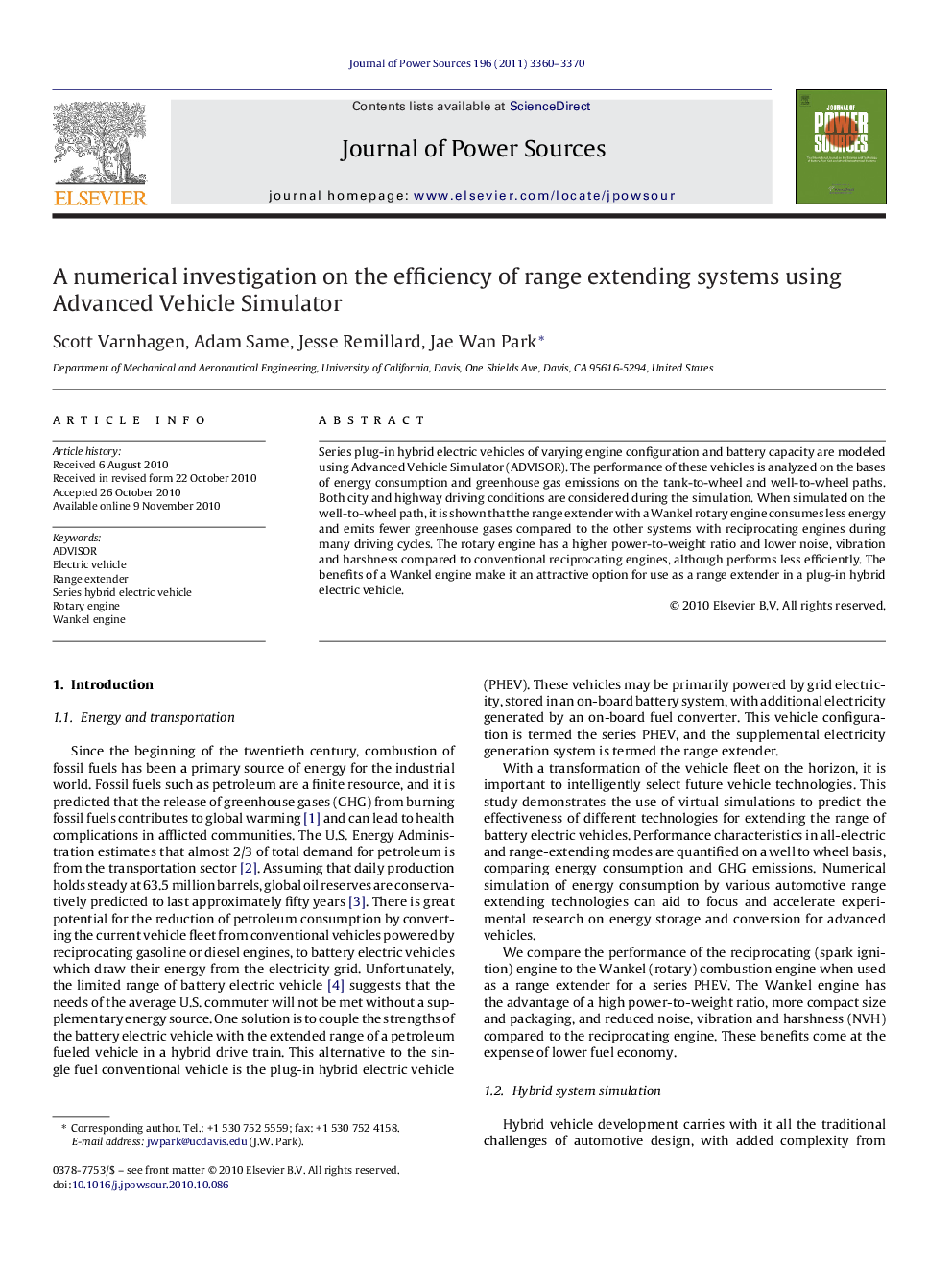| Article ID | Journal | Published Year | Pages | File Type |
|---|---|---|---|---|
| 10567659 | Journal of Power Sources | 2011 | 11 Pages |
Abstract
Series plug-in hybrid electric vehicles of varying engine configuration and battery capacity are modeled using Advanced Vehicle Simulator (ADVISOR). The performance of these vehicles is analyzed on the bases of energy consumption and greenhouse gas emissions on the tank-to-wheel and well-to-wheel paths. Both city and highway driving conditions are considered during the simulation. When simulated on the well-to-wheel path, it is shown that the range extender with a Wankel rotary engine consumes less energy and emits fewer greenhouse gases compared to the other systems with reciprocating engines during many driving cycles. The rotary engine has a higher power-to-weight ratio and lower noise, vibration and harshness compared to conventional reciprocating engines, although performs less efficiently. The benefits of a Wankel engine make it an attractive option for use as a range extender in a plug-in hybrid electric vehicle.
Related Topics
Physical Sciences and Engineering
Chemistry
Electrochemistry
Authors
Scott Varnhagen, Adam Same, Jesse Remillard, Jae Wan Park,
